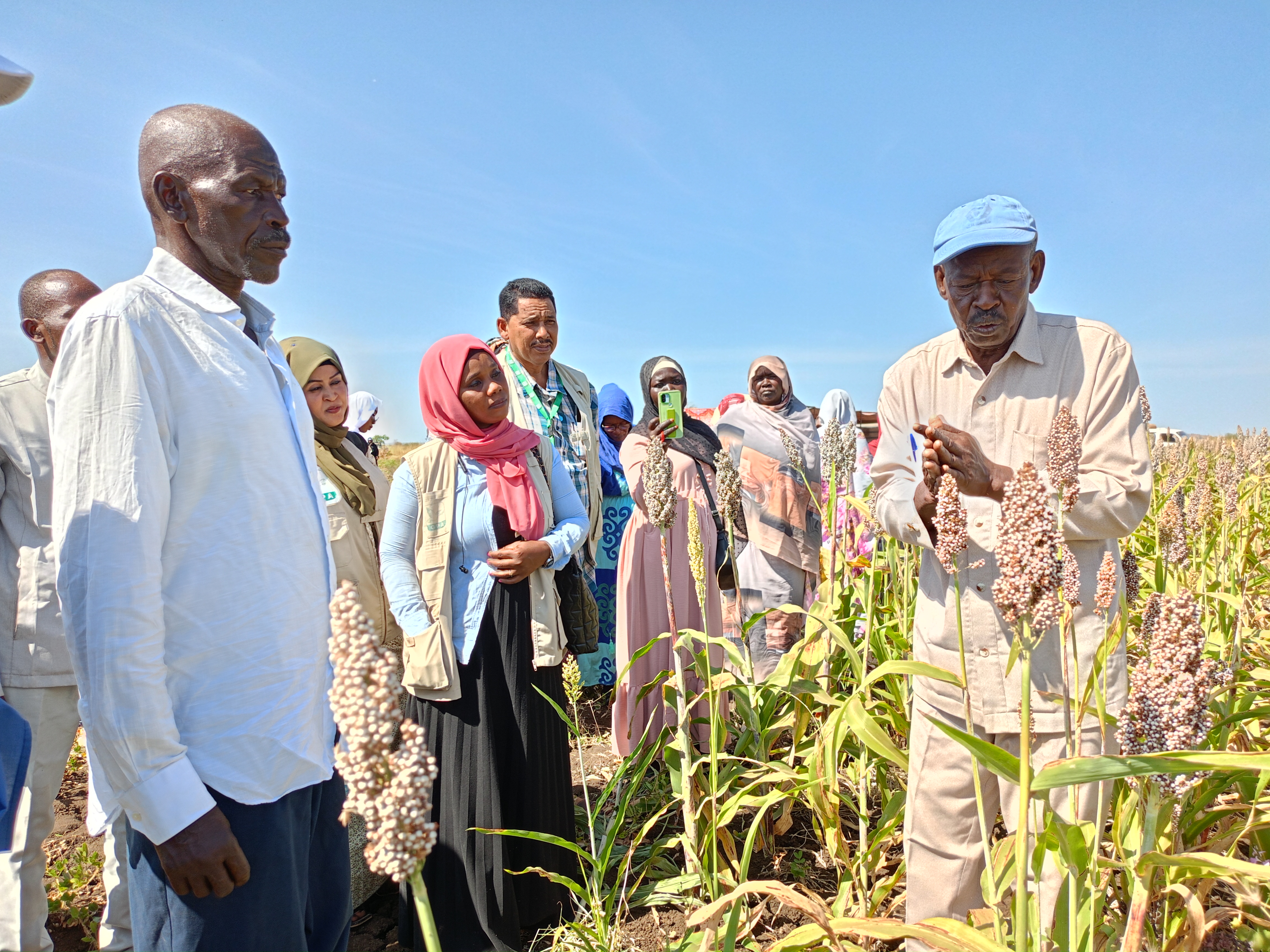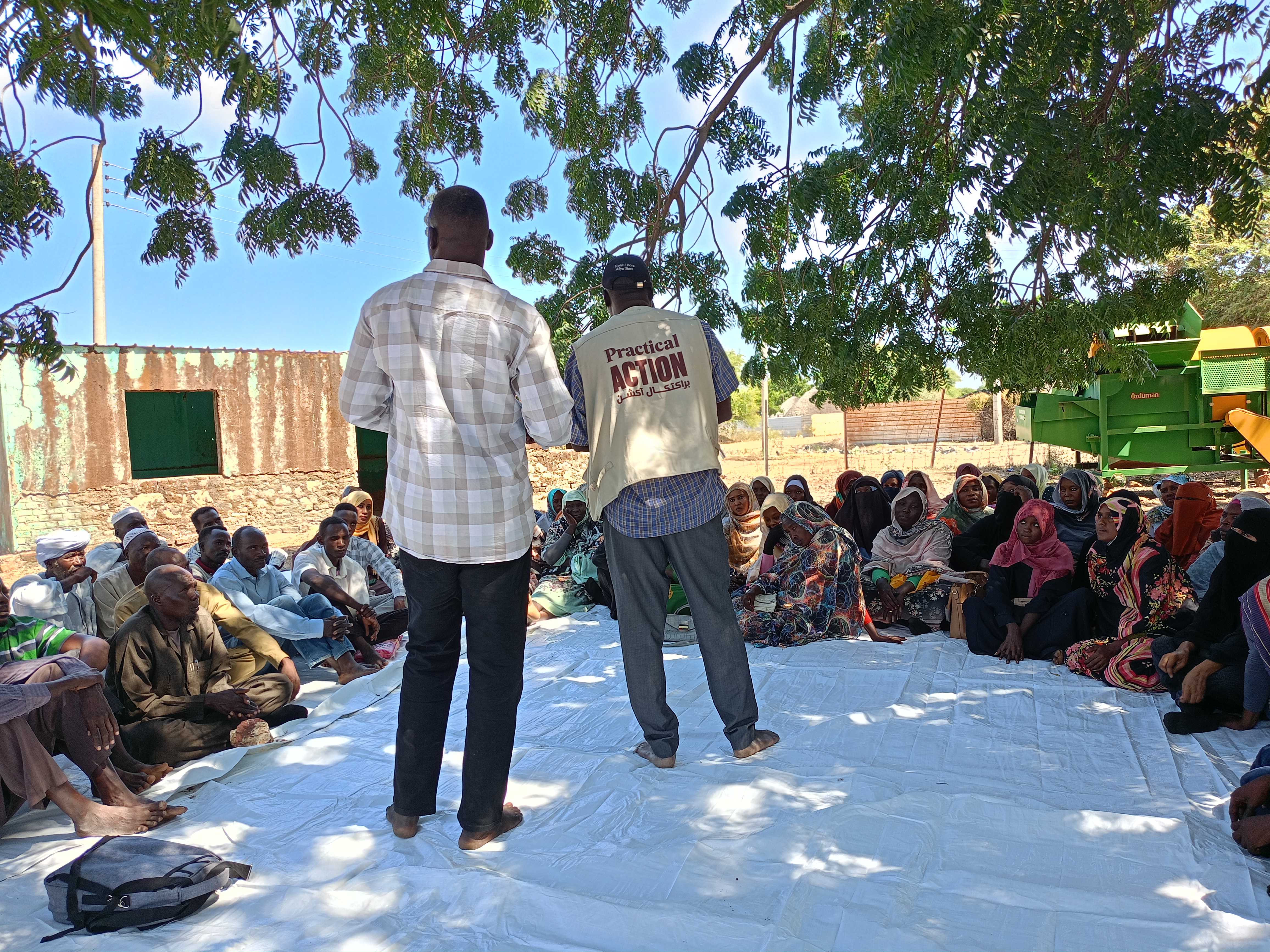
Hundreds of thousands of people in Sudan are set to benefit from improved access to nutritious food, clean water and job opportunities.
Over the next three years, farmers and rural communities will receive support to build stronger, more resilient farming livelihoods, despite the most challenging conditions of Sudan’s Gedarif, Kassala and North Darfur regions.
Our projects – one resuming after interruption, and one new – will particularly focus on supporting women and young people from agricultural households with vocational training and access to financial opportunities. From this, families will be better equipped to build stable lives and livelihoods.
Resuming work after USAID withdrawal
The original project will pick up where it left off, after financial support from the United States Agency for International Development (USAID) was suddenly withdrawn.
At the time, Practical Action publicly expressed concern over the cuts, which put many of lives at risk. Muna Eltahir, our Sudan Director, said “I have never experienced such disappointment in my career.
“[The people making these decisions] should be human before being politicians.”
You can see Muna’s full interview talking about the implications of the USA’s aid cuts on the people of Sudan here.
Now, this vital work will be resumed thanks to new funding from the World Food Programme, which has stepped in to support efforts to tackle hunger and malnutrition – both made worse by Sudan’s ongoing civil conflict.
Head of Programme Delivery for Practical Action in Sudan, Elmutaz Eltayeb, says: “The suspension of the project had a significant impact, particularly on the community and our relationship with them because of the uncertainty it created.
“There will be some delays as we restart, but I’m absolutely delighted that we can now complete the project and deliver what we promised.
“This has rightly been recognised as a vital programme of work and I would like to thank the World Food Programme for stepping in and allowing us to complete what we have already started.”
The focus of the work will now be to complete the construction and rehabilitation of water yards and the installation of solar irrigation systems.

New project strengthens efforts
Alongside the work we’re resuming, a new three-year project has also been announced. The initiative is called Enhancing Food Security and Resilience of Rural Communities in Sudan (EFSR) and it focuses on improving food security and community resilience.
The project will enhance agricultural productivity, nutrition, and income opportunities for smallholder farmers – focusing on women, refugees and internally displaced people, and young people from age 18.
Practical Action will work alongside local communities to repair and build water supply systems and install solar-powered irrigation. We will also run farmer field schools to promote climate-friendly practices such as crop rotation, agroforestry and soil conservation.
The first two years of the programme will focus on Gedarif and Kassala – areas that have remained relatively peaceful during the war but that have taken in large numbers of displaced people.
In the final year, work will continue in North Darfur, where Practical Action has supported farming communities for more than a decade.
Elmutaz Eltayeb explains: “In Gedarif, Kassala and North Darfur, poverty, hunger and high rates of malnutrition are closely tied to climate challenges and the difficulties faced by farmers.
“In this region, the effects of war and climate change have made it increasingly difficult for farmers and herders to grow enough food. Water shortages, poor access to training, and limited knowledge of local markets have added to the pressure.”
Over the next three years, the project will:
- Support over 64,000 people – including farmers, herders, women, young people and refugees – with climate-smart agricultural knowledge, tools and services.
- Set up 16 farmer field schools to promote sustainable farming practices.
- Distribute eight sets of farming machinery to boost productivity and reduce the need for heavy manual labour.
- Train around 2,000 women in food production and vocational skills to increase their income.
- Provide nutrition support for at least 2,000 children aged under five who are severely malnourished.
- Run nutrition awareness campaigns to help improve health among women and children.
- Establish women’s groups and cooperatives, linking them to micro-finance opportunities.
- Create more job opportunities for young people across all three regions.
The programme, funded by the United Nations Office for Project Services (UNOPS), is part of the wider international response to the crisis in Sudan. It brings both continuity and hope to communities striving to recover and rebuild.
